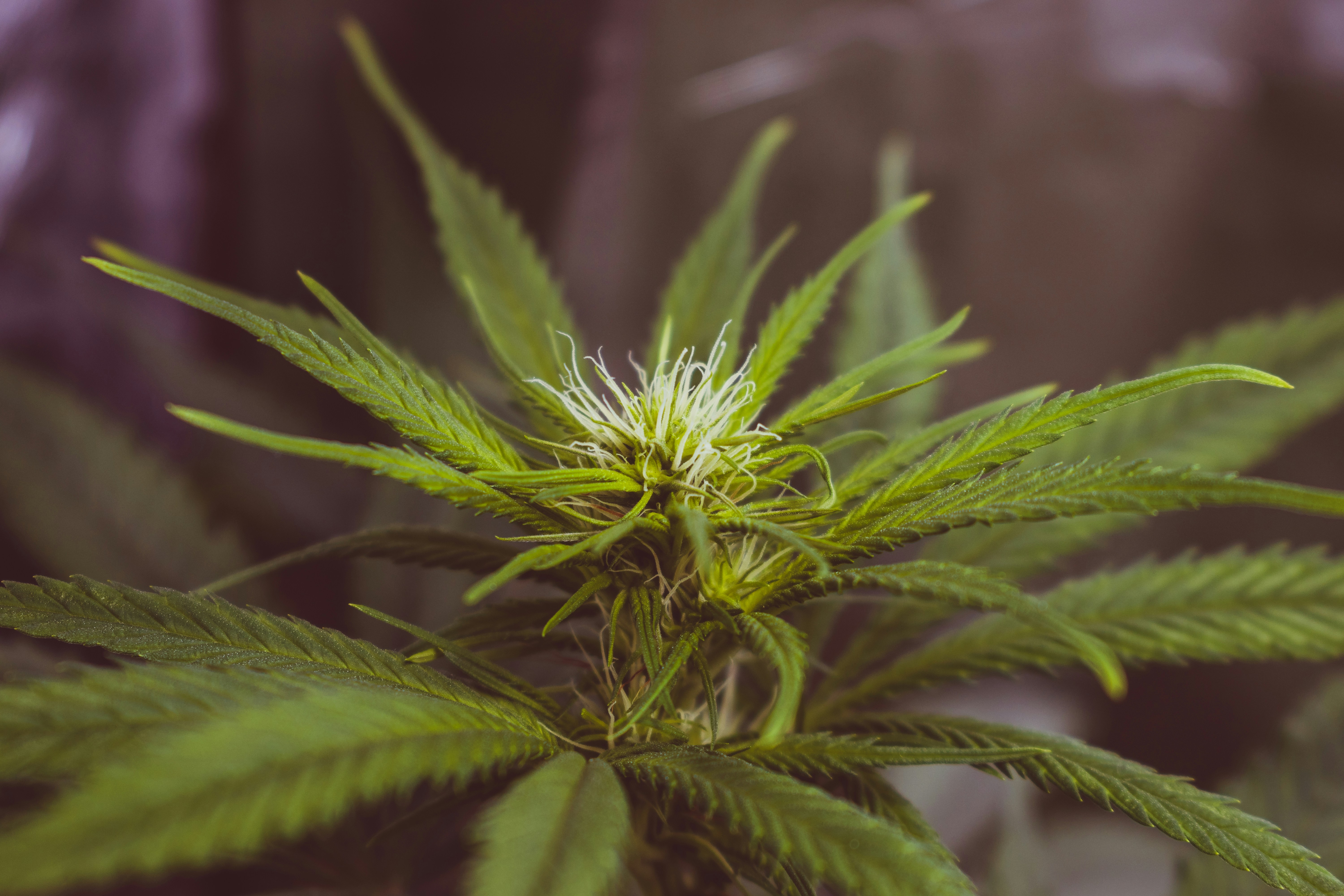In recent years, the wellness industry has seen a surge of interest in cannabinoids, particularly in the non-psychoactive sort like CBD, CBG, and CBN.
These compounds, derived from the cannabis plant, offer various therapeutic benefits, including relaxation and stress relief. Though their abbreviations sound similar, and may even be confused, these compounds are all different.
But which one should you choose? Should you go for ever-famous CBD products? Perhaps for CBG products, recently popularized in wellness circles? Maybe lesser-known CBN products?
The question here isn't which one is more relaxing— that’s a property they all have in common— but rather which compound is right for you.

What is CBD?
Cannabidiol, or CBD, is one of the most well-known cannabinoids found in the cannabis plant. Unlike THC, CBD does not produce a psychoactive effect, making it a popular choice for those seeking relief from various ailments without the "high."
CBD was first discovered in 1940 by Dr. Roger Adams and his team at the University of Illinois.
However, its potential therapeutic benefits did not gain widespread recognition until much later.
The turning point came in the early 1990s with the discovery of the endocannabinoid system (ECS), a complex cell-signaling system involved in regulating a variety of functions including sleep, mood, appetite, and memory.
Though CBD is certainly the most famous compound in this contest, a lesser known fact about it is that there are actually three distinct CBD types, all catered to different needs and aiming at different goals.
Types of CBD
CBD products come in several forms, each with its own advantages:
- Full-Spectrum CBD Products: Contain all cannabinoids, terpenes, and other compounds found in the cannabis plant, including trace amounts of THC (less than 0.3%). The synergy between these compounds is known as the entourage effect, which may enhance the overall therapeutic benefits.
- Broad-Spectrum CBD Products: Similar to full-spectrum CBD, but with all THC removed. This type still offers the entourage effect without any THC.
- CBD Isolate Products: Pure CBD with no other cannabinoids or terpenes. It’s ideal for those who want to avoid THC altogether or who may be sensitive to other cannabinoids.
The Effects and Benefits of CBD
CBD is renowned for its potential to alleviate a wide range of conditions. Here are some of its key effects and benefits:
- Stress Relief: CBD interacts with the endocannabinoid system, which plays a role in regulating mood and stress responses. Many users report reduced stress and a sense of calm after using CBD.
- Pain Management: CBD has anti-inflammatory properties that can help reduce pain and inflammation, making it useful for conditions like arthritis, chronic pain, and muscle soreness. Studies have demonstrated that CBD can inhibit inflammatory and neuropathic pain, which are difficult to treat.
- Improved Sleep: By promoting relaxation and reducing anxiety, CBD can help improve sleep quality and duration. Some studies suggest it may also help with insomnia. A study published in The Permanente Journal indicated that CBD could help improve sleep and reduce stress.
What is CBG?
Cannabigerol, or CBG, is often referred to as the "mother of all cannabinoids" because it is the precursor to other cannabinoids like CBD and THC.
While it is present in much smaller quantities in the cannabis plant, its unique properties are garnering more and more attention
CBG was discovered in 1964 by researchers Raphael Mechoulam and Yehiel Gaoni.
CBG is formed when cannabigerolic acid (CBGA), the acidic form of CBG, is broken down by enzymes in the cannabis plant.
CBGA is the precursor to the three main cannabinoid lines: tetrahydrocannabinolic acid (THCA), cannabidiolic acid (CBDA), and cannabichromenic acid (CBCA).
This means that any cannabinoid you use, whether for medicinal or recreational purposes, all come from one mom— they’re all siblings! Isn't that cool?!
The Effects and Benefits of CBG
CBG offers a range of therapeutic benefits, including:
- Anti-Inflammatory Properties: Similar to CBD, CBG has strong anti-inflammatory effects. Studies have shown that CBG can reduce inflammation in the digestive tract, making it a potential treatment for IBD.
- Pain Management: CBG may help in pain management, particularly for chronic pain and neuropathic pain, by interacting with the ECS and other receptors in the body. Research has indicated that CBG can provide analgesic effects without producing a high.
- Neuroprotective Effects: Preliminary studies suggest that CBG may have neuroprotective properties. A study in mice showed that CBG could improve motor deficits and preserve neurons.
- Appetite Stimulation: Unlike CBD, CBG can stimulate appetite, which can be beneficial for individuals dealing with appetite loss due to medical conditions or treatments. Studies have shown that CBG can increase appetite.

What is CBN?
Cannabinol, or CBN, is a cannabinoid that forms as THC ages and breaks down. While it is present in smaller amounts, it is known for its potential sedative effects.
CBN was the first cannabinoid to be isolated and identified in the 1930s. It is a product of THC degradation, meaning that as cannabis ages, THC converts into CBN.
This process can be accelerated by exposing THC to heat and oxygen.
The Effects and Benefits of CBN
CBN is particularly noted for its potential to aid in relaxation and sleep. Here are its primary effects and benefits:
- Sedative Properties: CBN is often used as a sleep aid due to its sedative effects. It is believed to be one of the most sedative cannabinoids, which can help those with insomnia or sleep disturbances. Anecdotal reports and some preliminary studies suggest that CBN can help prolong sleep duration.
- Pain Management: Like CBD and CBG, CBN has analgesic properties that can help alleviate pain, making it useful for chronic pain management. Research has shown that CBN can reduce pain in animal models.
- Anti-Inflammatory Effects: CBN also possesses anti-inflammatory properties, which can be beneficial for conditions involving inflammation. Studies indicate that CBN can reduce inflammation by interacting with the ECS.
- Appetite Stimulation: Similar to CBG, CBN can stimulate appetite, which can be helpful for those experiencing appetite loss. Research has shown that CBN can increase food intake in animal studies.

CBD vs. CBG vs. CBN: The Differences and Similarities
While CBD, CBG, and CBN all interact with the endocannabinoid system and offer therapeutic benefits, they each have unique properties and effects.
The Similarities
- Non-Psychoactive: None of these cannabinoids produce a high, making them suitable for those seeking therapeutic benefits without psychoactive effects.
- Pain Management: All three cannabinoids have analgesic properties that can help manage pain.
- Anti-Inflammatory: Each cannabinoid has anti-inflammatory effects, beneficial for various inflammatory conditions.
- Cognitive Benefits: CBD, CBG, and CBN all show potential cognitive benefits, aiding in general health and wellness.
The Differences
- Sedative Effects: CBN is particularly noted for its sedative properties, making it a popular choice for sleep aid, whereas CBD and CBG are less sedative.
- Appetite Stimulation: Both CBG and CBN can stimulate appetite, unlike CBD, which does not have this effect.
- Interaction with ECS: Each cannabinoid interacts with the endocannabinoid system differently. For example, CBG is known to bind directly to CB1 and CB2 receptors, whereas CBD primarily influences the system indirectly.
CBD vs. CBG vs. CBN: A Quick Comparison Chart
|
Property |
CBD |
CBG |
CBN |
|---|---|---|---|
|
Psychoactivity |
Non-Psychoactive |
Non-Psychoactive |
Non-Psychoactive |
|
Sedative Effects |
Mild |
Mild |
Strong |
|
Pain Management |
Yes |
Yes |
Yes |
|
Cognitive Protection |
Yes |
Yes |
Yes |
|
Appetite Stimulation |
No |
Yes |
Yes |
|
Interaction with ECS |
Indirect |
Direct (CB1, CB2) |
Direct (CB1, CB2) |
Which One is Best?
The question of which cannabinoid is best depends largely on your specific needs and what you are looking to achieve.
When it comes to relaxation, CBN stands out due to its potent sedative effects. If you are struggling with sleep or severe stress, CBN might be the best option.
However, for general relaxation and stress relief, CBD is a popular choice due to its calming effects without sedation.
CBG can also contribute to relaxation, especially if inflammation and pain are causing stress.
The Hypotheticals: Scenario-Based Recommendations
- For General Stress: CBD is often recommended due to its well-rounded effects on mood and stress without causing drowsiness. It can be taken during the day to help manage stress and anxiety without interfering with daily activities.
- For Lessened Pain: Both CBD and CBG are excellent choices. CBD’s anti-inflammatory and analgesic properties make it suitable for a variety of pain conditions. CBG, with its strong anti-inflammatory effects, can also be highly effective, particularly for conditions like IBD.
- For Sleep Issues: CBN is the go-to cannabinoid for sleep problems due to its sedative effects. It can help those who have trouble falling asleep or staying asleep.
- For Appetite Stimulation: CBG and CBN both have appetite-stimulating properties. These cannabinoids can be beneficial for individuals experiencing appetite loss due to medical treatments or conditions.
CBN, CBG, & CBD: Key Takeaways
To summarize, CBD, CBG, and CBN each offer unique benefits and can be used in combination to achieve a desired level of relaxation and wellness.
Understanding their individual properties and how they interact with the body, however, can help you choose the right cannabinoid for your needs.
Whether you are looking for mild relaxation, pain management, or a good night's sleep, there's a cannabinoid that can help you achieve your goals.
Here’s a quick review of all three cannabinoids:
- CBD: Great for overall wellness, stress relief, pain management, and improving sleep quality without significant sedation.
- CBG: Offers powerful anti-inflammatory and pain management benefits, with some additional properties. It's also beneficial for appetite stimulation and cognitive function.
- CBN: Best for sleep and deep relaxation due to its strong sedative properties. It also provides pain relief and can stimulate appetite.
By considering the specific effects and benefits of each cannabinoid, you can make an informed decision that aligns with your wellness objectives.
Always consult with a healthcare provider before starting any new supplement regimen, especially if you have existing health conditions or are taking other medications. With the right approach, these cannabinoids can be a valuable part of your relaxation and wellness toolkit!













